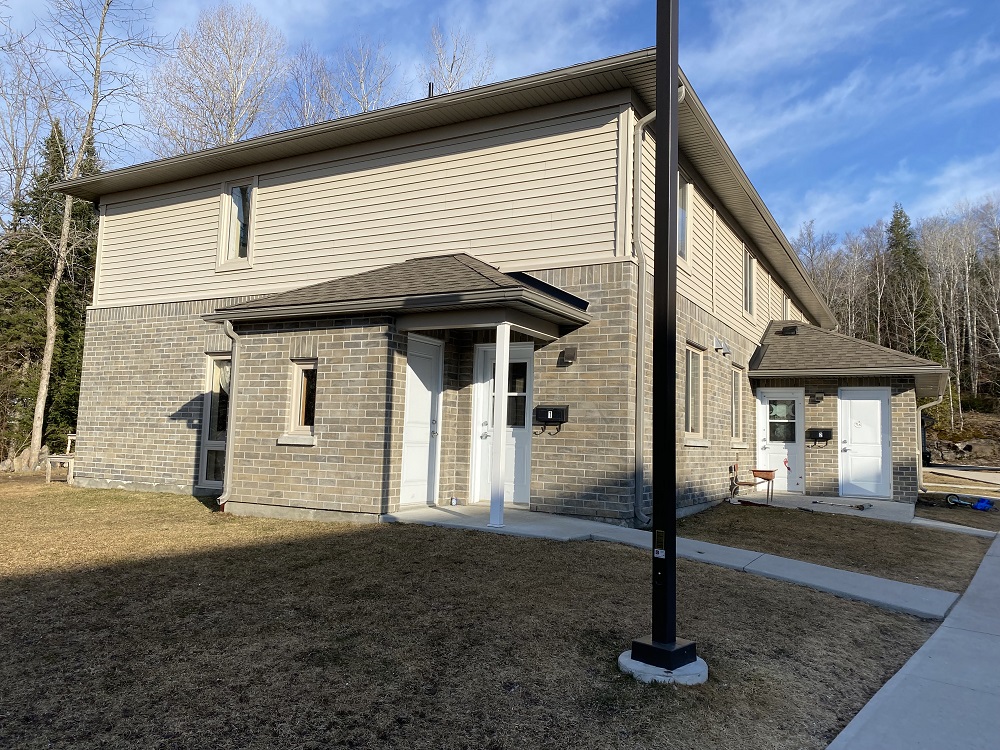Homelessness across Haliburton County has grown significantly over the past two years, while as many as 400 households in the Highlands are on a wait list for subsidized community housing.
While she paints a bleak picture, Michelle Corley, manager of the Kawartha Lakes-Haliburton Housing Corporation, noted the COVID-19 pandemic had not been kind to many people in Haliburton County, leaving some homeless and many others close to it.
“Currently, in the County of Haliburton, we are aware of 37 homeless households – three couples, six families, seven seniors, 15 singles and six youth,” Corley said.
“While there is no doubt that there has been an increase in homelessness, some of this may be that our system has gotten better at identifying homelessness.”
In March 2020, Corley said her organization was aware of 12 households experiencing homelessness in the Highlands.
KLH Housing Corporation offers affordable and market-based rents to hundreds of households across its coverage zone. It also offers assistance through various programs to people affected by homelessness.
Almost all services are running at maximum capacity, Corley noted. As of February, there are more than 400 households in Haliburton County waiting for community housing. This is up substantially over the past two years, Corley added.
Wait times for families to be matched with appropriate community housing can be as long as 10 years, and sometimes even longer than that, Corley admitted.
The provincial government recently provided the KLH Housing Corporation with an additional $166,000 in funding to help address homelessness as part of a new Ontario-wide initiative.
The Homelessness Prevention Program, launched April 1, combines three existing programs running under the housing umbrella: the Community Homelessness Prevention Initiative, Home for Good, and the Strong Communities Rent Supplement Program.
Local MPP Laurie Scott said the amalgamation will give service managers at the grass roots level more flexibility to target funding where it is needed, and allow for greater financial accountability by measuring an organization’s progress in reducing and preventing homelessness in their communities.
In total, the government plans to invest $464 million into the program annually.
Corley said the additional funding received this year would be put to good use as her team continues their work to combat a growing problem in the community.
“With the top-up, we will be able to cover some ongoing costs of rent supplements within new affordable housing buildings, allowing some households with very limited income to have rent geared to their income,” Corley said. “Other potential uses might be to have additional partnerships for supports for those who are struggling to maintain housing given their need for additional supports.”
To learn more about KLH Housing Corporations and its services, visit kawarthalakes.ca/en/living-here/klhhousing-corporation





